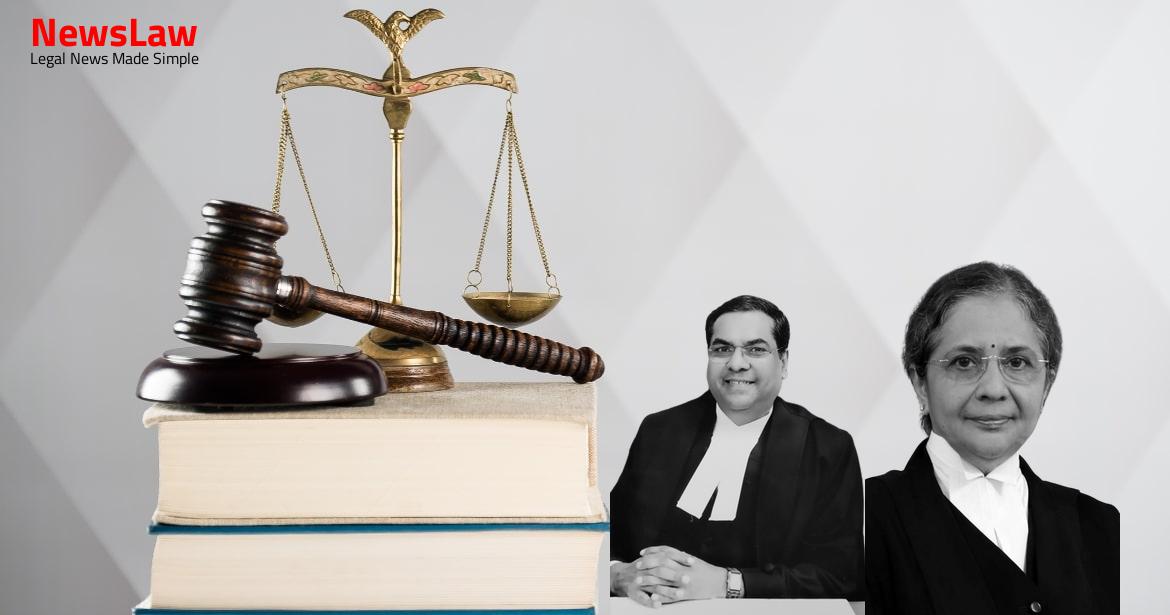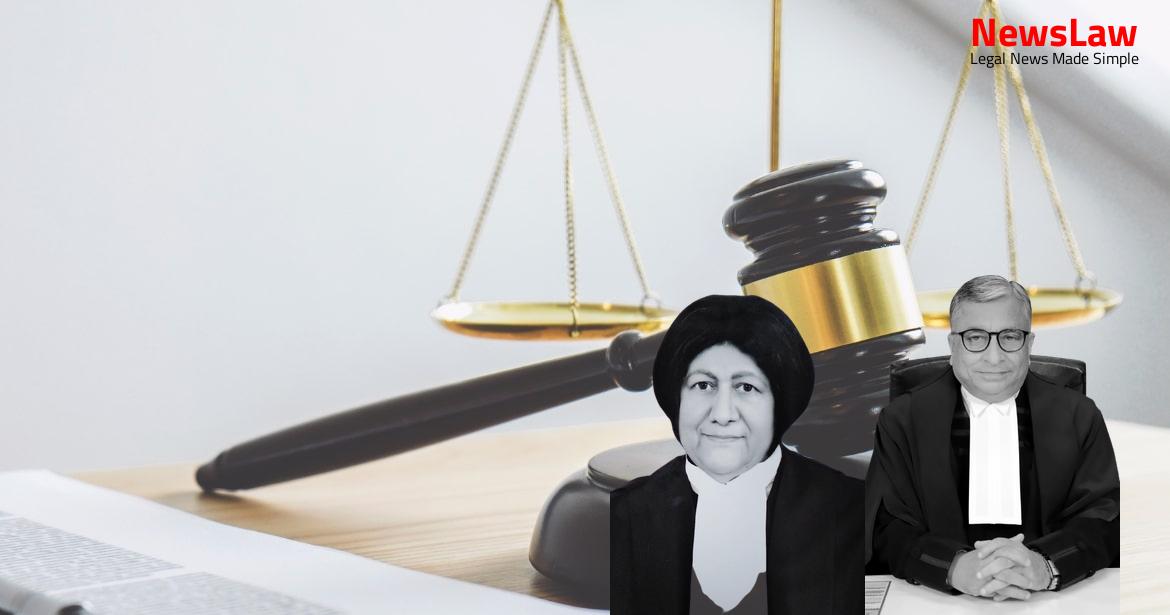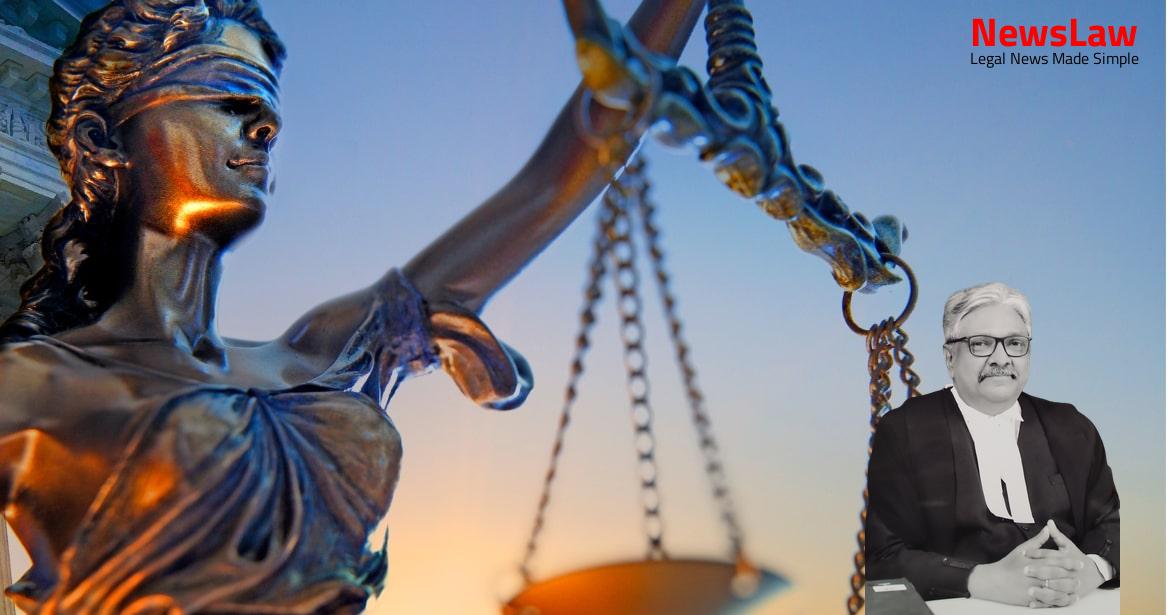Explore a detailed legal analysis on vicarious liability in company offences as highlighted by the court. The analysis sheds light on the necessity of understanding legal provisions thoroughly before prosecution to prevent wrongful charges. Emphasizing the significance of fulfilling statutory requirements and the role of the proviso in providing immunity, this analysis offers a comprehensive perspective on legal intricacies in such cases.
Facts
- Labour Enforcement Officer filed a criminal complaint under Section 22A of the Act against Dayle De’Souza and Vinod Singh.
- The Company claimed that they do not manage or work at the ATM in question.
- The appellant and Vinod Singh were informed to appear in court on 14 August 2014 by the Labour Enforcement Officer.
- High Court dismissed the petition as without merit in January 2020.
- The complaint lists Dayle De’Souza and Vinod Singh as accused.
- An agreement for servicing and replenishment of ATMs was entered into by the Company with NCR Corporation India Private Ltd.
- Labour Enforcement Officer inspected the State Bank of India’s ATM in February 2014.
- A notice alleging non-compliance with Minimum Wages Act was issued to the appellant and Vinod Singh in March 2014.
- The Company submitted a representation denying the allegations in August 2015.
- The appellant filed a petition under Section 482 of the Code of Criminal Procedure in August 2015 to quash the complaint in Criminal Case No. 3398/2014.
- Judicial Magistrate took cognisance of the offence on 14 August 2014 and issued a bailable warrant against the accused.
Also Read: Land Auction Dispute Resolution
Analysis
- Section 22C of the Act imposes liability on individuals and companies for committing offences under the Act.
- Individuals in charge of the company at the time of the offence are deemed guilty and liable to be punished unless they prove lack of knowledge or due diligence to prevent the offence.
- Section 22C(1) specifies that individuals in charge and responsible for the company’s business are considered guilty of the offence.
- Directors, managers, or officers of a company can also be deemed guilty if the offence was committed with their consent, connivance, or neglect.
- The prosecution bears the onus of proving the involvement of directors, managers, etc., in the offence.
- For vicarious liability under Section 22C(1), the individual must be in charge and responsible for the company’s conduct of business at the time of the offence.
- The term ‘in-charge of the company’ and ‘responsible to the company’ are crucial for determining liability under Section 22C(1).
- The court emphasized the importance of having a comprehensive understanding of legal provisions before prosecution to prevent innocent individuals from being wrongly charged.
- The prosecution of a company is mandatory for certain offenses, and there is no presumption that every Director is aware of all transactions.
- The court highlighted the necessity of considering legal provisions in conjunction with the factual background before initiating prosecution.
- The definition of a person ‘in-charge’ was discussed as someone in overall control of the day-to-day business operations.
- The court emphasized that the responsibility lies with the complainant to prove the active role of the accused in the offense.
- Vicarious liability is attracted when an offense is committed with the consent or neglect of a director, manager, secretary, or officer of the company.
- The court criticized a previous decision for not correctly laying down the law and overruled it.
- It was reiterated that making all directors liable for an offense under Section 141 is not valid as per the law laid down in previous cases.
- The court highlighted the importance of clear averments in a complaint to establish liability.
- The necessity of fulfilling the requirements of the Act for maintaining a prosecution was underlined.
- The court discussed the role of the proviso in providing immunity to those vicariously liable under the Act.
- The necessity of arraigning a company as an accused for maintaining a prosecution under Section 141 was emphasized.
- The court examined the conditions that must be met for the proviso to come into operation.
- There was a focus on the significance of enforcing compliance with rules and regulations, especially in safeguarding workers’ rights.
- The liability to pay penalty does not arise merely upon proof of default in registering as a dealer.
- An order imposing penalty for failure to carry out a statutory obligation is the result of a quasi-criminal proceeding.
- Penalty will not be imposed merely because it is lawful to do so.
- The prosecution should make specific averments in the complaint to hold accused vicariously liable.
- Section 141(1) of the Negotiable Instruments Act extends vicarious criminal liability to officers of a company through deeming fiction only when the offence is committed by the company itself.
- Maintaining the prosecution under Section 141 of the Act requires arraigning the company as an accused.
- The proviso to Section 141(1) of the Act exempts persons from liability if they can prove lack of knowledge or due diligence in preventing the offence.
- The discretion of authorities to impose penalties should be applied judiciously to avoid unreasonable results.
- The High Court overruled the proceedings against directors without specific allegations against them.
- The proceedings against the appellant were quashed as the company was not arraigned as an accused.
Also Read: Analysis of Bail Conditions in Criminal Appeal No. INSC 48/2024
Decision
- Proceedings against accused no. 2, Vinod Singh, quashed
- Present appeal allowed
- Summoning order and proceedings against the appellant quashed
- Accused no. 2, Vinod Singh, entitled to benefit of the order
Also Read: Conviction Upheld for Murder and Concealment of Body
Case Title: DAYLE DE SOUZA Vs. GOVERNMENT OF INDIA THR. DEPUTY CHIEF LABOUR COMMISSIONER (C) (2021 INSC 699)
Case Number: Crl.A. No.-001319-001319 / 2021



